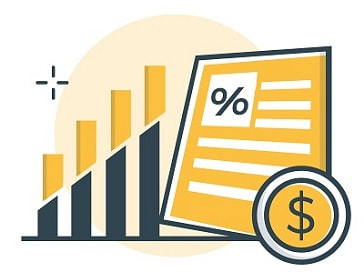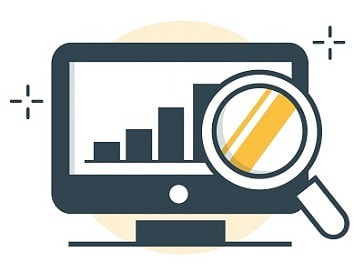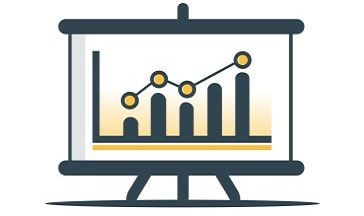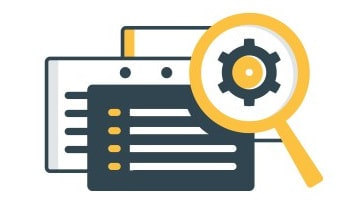Managed Funds - The Definitive How to Invest Guide
Understand what managed funds are, how they work, where they invest, what they cost and how you can invest in one.
Updated 22 July 2024
What are managed funds?
A managed fund is an investment that pools your money together with other investors. The managed fund then buys shares, bonds and/or other securities; what they hold is known as an ‘investment portfolio’. A managed fund’s investment portfolio would, in most cases, be difficult to create on your own given the number of shares and bonds held. Managed funds are, as their name suggested, managed by someone known as a portfolio manager. The value of the managed fund changes daily based on the performance of the investments.
Our Managed Funds guide covers:
Disclaimer: The contents of this guide do not constitute financial advice. Our guide has been published simply as an exercise to raise awareness about what to consider before investing in a managed fund.
Are you looking for top-performing managed funds? Our Top Performing Managed Funds guide has you covered.
Are you looking for top-performing managed funds? Our Top Performing Managed Funds guide has you covered.
What managed funds are available in New Zealand?
There are hundreds of managed funds available to New Zealand investors. Most are offered by specialist fund managers (listed below) and online investment platforms, such as InvestNow and Sharesies.
New Zealand has 20+ fund management companies; we have listed twenty of the most well known below. For more information, we suggest visiting their respective website and downloading their funds’ Product Disclosure Statement. This document outlines all the funds offered and what they invest in.
New Zealand has 20+ fund management companies; we have listed twenty of the most well known below. For more information, we suggest visiting their respective website and downloading their funds’ Product Disclosure Statement. This document outlines all the funds offered and what they invest in.
The Fundamentals of Managed Funds Explained
Our frequently asked questions below outline the most important aspects of managed funds. If you believe we're missing something important - please contact our research team.
Managed funds in a nutshell:
The general idea of managed funds is that you choose a fund, invest a specific amount of money and, over time, expect the fund to return a profit and withdraw money to take the profit. For example:
- If you invested $10,000 in Fund A and it returned a profit of 10% after one year, you would expect your investment to be worth $11,000.
- To collect the profits, you need to cash out some or all of your fund. To do this, you contact the fund manager and tell them you would like to withdraw from the fund. The fund management company then deposits the money in your bank account.
How do managed funds work?
Once you have invested into a managed fund, your money is pooled together with other investors. The fund’s portfolio manager then decides where the money is invested according to the fund’s strategy. Some funds will be aggressive and aim for high returns, while others will invest in income-producing assets like bonds.
Of particular importance to a managed fund is its price. The price of a managed fund is known as the net asset value (NAV).
The NAV is calculated by the total dollar value of the fund’s investments (known as “funds under management”), divided by the number of fund shares. For example, if the funds under management totalled $100 million and there were 100 million shares, the NAV would be $1. If the funds under management performed well and increased in value to $120 million, the NAV would be $1.20.
Know this: The NAV moves up and down every day because the price of the fund’s investments go up and down daily.
Of particular importance to a managed fund is its price. The price of a managed fund is known as the net asset value (NAV).
The NAV is calculated by the total dollar value of the fund’s investments (known as “funds under management”), divided by the number of fund shares. For example, if the funds under management totalled $100 million and there were 100 million shares, the NAV would be $1. If the funds under management performed well and increased in value to $120 million, the NAV would be $1.20.
Know this: The NAV moves up and down every day because the price of the fund’s investments go up and down daily.
When I invest in a managed fund, what do I own?
Managed fund investors do not own the securities in which the fund invests; all the investments (for example, shares in companies and bonds) are owned by the managed fund. Instead, as an investor in the managed fund, you own shares in the fund itself. You can then sell these shares when you decide to cash out and take profits.
Who decides what the fund invests in?
Managed funds will either be actively managed or passive (also known as index-based) - our Passive Investing vs Active Investing guide has more details about the differences.
- With an actively managed fund, the decisions to buy and sell specific shares and bonds are made by the portfolio manager and his or her investment analysis team. The objective of an actively managed fund is to outperform (e.g. make more profit) an established benchmark. The benchmark is usually an index, like the NZX50 or S&P500. To do this, the portfolio manager looks for opportunities to where shares are undervalued
- With a passive fund, there is no portfolio manager. Instead, the managed fund company invests your money into a fund which tracks an established sharemarket index. You learn more about index funds here.
How does a fund manager make money?
Whether you invest in an actively managed or passive fund, both charge you something known as a management fee. It is, in almost all cases, expressed as a percentage of funds under management. For example, 1% p.a. or 0.5% p.a. This means that if you invested $10,000 in a fund and the management fee was 1% p.a, $100 (1% of $10,000) would be taken from your fund and paid to the fund manager. The fee is to cover the costs of running the fund (staff, overhead, legal fees etc.). The management fee is calculated daily, so as the fund increases in value over time (as it expects to do), the fund manager increases its revenue as the fee is charged as a percentage on your investment.
Investing in Managed Funds - What You Need to Know
Disclaimer: The journalistic assertions below do not constitute financial advice, and the tools listed below are included based on their data depth. There is no "best" fund - this is simply an exercise to raise awareness about what to consider before investing in a managed fund.
How do I choose a managed fund?
Before you invest in a managed fund, it's essential to make sure you understand why you are investing in the first place, and what you're investing in.
To make the best investment decision, ask yourself why you are investing:
Ideally, before you look at what to invest in, you'll be clear about whether a conservative, balanced or growth fund is for you. You can then look for a fund that meets your needs.
Once you know your fund type, ask yourself what are you investing in:
To make the best investment decision, ask yourself why you are investing:
- Why am I investing - is it retirement savings, save for a house deposit or to protect a safety net? If your investment is retirement-focused, you will perhaps be looking at a growth-focused fund. A fund that protects savings would arguably be one that is lower risk.
- How much risk am I prepared to take - would I be comfortable with my investment falling in value on a daily, monthly or even yearly basis? Funds go up and down; if you don't like the idea of losing money (on paper), then a conservative fund which invests in income-producing assets could be more suitable.
Ideally, before you look at what to invest in, you'll be clear about whether a conservative, balanced or growth fund is for you. You can then look for a fund that meets your needs.
Once you know your fund type, ask yourself what are you investing in:
- What does the fund invest in, and in what countries? Each fund will disclose its target asset allocation, which simply means what it invests in (shares, bonds, cash, etc.) and where (countries or territories). Make sure when you invest in a fund, you know where your money is going as it will help you understand the returns you make. For example, if you invest in a managed fund which invests in Asia and Asian markets surge, your fund should increase in value.
- How has the fund performed in the most recent 1-year, 3-year and 5-year periods? This is very important, and while past performance doesn't indicate or guarantee any future results, it does show the fund's track record.
- How much is the management fee? As an investor, you will pay for the costs of running the fund. Everyone has a different reaction to fees; some people would happily pay 2% p.a. for a return of 7% p.a., while others would prefer to pay 0.50% p.a. for a 4% return. Fees are important, and you'll need to decide what's right for you.
Know how to evaluate fund manager performance
As outlined above, looking at recent returns is the best way to understand how a fund has performed. Managed fund comparison websites include:
Both of these websites offer information for free and are not affiliated to any funds management company.
- Sorted's Smart Investor - an incredibly useful tool which illustrates the fees, returns and investments of every managed fund available in New Zealand
- Morningstar - Morningstar publishes fund performance monthly, which is sourced from the fund managers directly. They hold a lot of detail - we've uploaded this video and published this guide to help you interpret the information.
- Are you looking for top-performing managed funds? Our Top Performing Managed Funds guide has you covered.
Both of these websites offer information for free and are not affiliated to any funds management company.
Is now a good time to invest in managed funds?
Investing is a long-term decision, so there's never a "bad" time, nor is there a "good" time. You will need to consider how much you're comfortable with. If financial markets are collapsing day after day, as they did in early 2020 with COVID-19, then arguably you may want to consider holding off investing. Investing in managed funds is a long-term decision, so timing is not everything and investors are often advised to invest on a regular basis rather than trying to time the market. If you need more guidance, we suggest looking for information published by well-known New Zealand financial experts and/or contacting a financial advisor.
Managed Funds – Pros and Cons
Pros:
Cons:
- Simple investment process - you don't need to pick what shares to invest in. Instead, you pick a fund and deposit the amount of money you want to invest.
- Diversifying risk - managed funds invest in dozens of different assets such as shares and bonds, so if one company underperforms, the other investments can make up for this.
- Affordable initial deposits - you can join most managed funds with as little as $50 (using InvestNow). Simplicity Investment Funds requires a minimum $1,000 deposit.
- Regular updates - fund managers are obligated by financial markets law to send their investors fund updates, audited accounts and performance data. You will also have a client services team who can answer questions about the fund.
- Tax is taken care of - the fund manager remits PAYE back to the IRD based on your IRD, so you don't need to do anything.
- Cost efficiencies - managed funds have a set fee, so you won't pay more than an agreed percentage of your investment per year, even if the managers incurred more costs running the fund (i.e. in times of market volatility).
Cons:
- Your investment value can drop - this is true of most investments (other than term deposits with an A-rated bank), and not a specific negative feature of managed funds. It's just something to be aware of.
- You don't have any input into investing decisions - when you choose a fund, you hire fund managers to invest based on research or agreed objectives. You won't be able to suggest investment opportunities.
- The fees can be high even if the returns are low - if you pay a 1.50% p.a. management fee for an after-fee return of 3% p.a., you may feel like you received poor value for money. Fund managers and their investors make more money and are happier when funds perform above expectations, and vice versa.
10 Must-Know Managed Funds Facts and Tips
Managed funds are cost-effective and offer diversityManaged funds offer a cost-effective way to invest in a diverse number of companies and asset types (i.e. bonds, shares and term deposits). Platforms like Sharesies and InvestNow let you invest in a managed fund with as little as 1 cent and $50 respectively. These platforms let you make regular contributions (for example, $50 a week) so you can invest in managed funds as a saving strategy. An attractive feature of managed funds is that you don’t have all of your money in one, two or three companies.
Most managed funds offered in New Zealand hold at least 50 securities so are relatively lower risk. It would also be near-impossible to invest in as many companies as a typical managed fund does, so there are huge efficiencies by investing in a fund that suits your needs. |
Managed funds are (in most cases) professionally runIf you invest in an actively managed fund, your money is looked after by a professional portfolio manager. Their reputation depends on the performance of the fund, so they are incentivised to outperform what someone could earn from an index fund. Investing in an actively managed fund means your money is looked after by analysts who bring expertise and technology resources to research the best companies to invest in. Their job is to analyse hundreds of companies and make decisions on what to buy and sell.
If you don’t have time or don’t want to read about companies listed on the NZX or overseas, having a portfolio manager to oversee your investments can potentially be invaluable. Warning: One fund manager is not like another. While the vast majority follow a robust investment process, there have been cases in New Zealand where fund managers have failed their investors. Recent examples include Penrich Capital Limited and Ross Asset Management (revealed to be a PONZI investment scam). It's important to keep in mind that just because a managed funds company has a nice website and talks about its experience doesn't mean it's investing in your best interests. Always do your due diligence before making any investment. |
Managed funds re-invest dividends which sees your savings maximisedWhen a company makes a profit and decides to give it to the shareholders, a dividend is paid out. If your managed fund has shares in companies paying dividends, as a part-owner you will receive this dividend which is paid in cash to the fund. The fund then buys more shares, so your investment return compounds as it invests in more growth-focused assets.
Not all managed funds invest in companies that pay dividends, but there are specialist funds that focus on 'income-producing equities', which means shares that pay dividends. |
Managed funds pay tax on your behalfIf your fund receives dividends and/or interest payments from the assets it invests in, the fund manager will pay the tax due on your behalf. You will need to give the fund manager your prescribed investor rate (PIR) to make sure you’re taxed at the correct rate. The net proceeds are, as explained above, added to your fund to help your savings grow.
|
Every managed fund will charge its investors fees - how much they are ranges considerablyYou can find a fund that will charge as little as 0.10% p.a. (Simplicity’s index-following NZ Shares Investment fund), or you can pay more than 1.50% for something that aims to outperform the markets (such as a Fisher Funds or Milford Asset Management fund). How much you pay is really driven by the costs of running the fund. Any index fund, which doesn’t need to hire analysts or investment managers (as there’s nothing to analyse or manage) will be much cheaper than a fund that needs a big investment team. We discuss the pros and cons of index funds in a dedicated guide.
Important: When evaluating a fund, keep in mind that the fees you’ll pay do impact how the fund will perform over time. For example, a managed fund with a gross return of 5% p.a. and a 1.50% p.a. management fee underperforms a fund with a gross return of 4% and a 0.25% p.a. management fee. When looking at managed funds, make sure you find out the recent returns after fees to make sure you are comparing apples with apples. |
Funds can (and do) drop in value, and sometimes can crashBuying into a fund is not a guaranteed path to riches. Funds can go down in value just as much as they can go up. In 2008, a number of New Zealand managed funds crashed in value as the investments included toxic CDO and MBS assets, which were part of the subprime mortgage scandal. Once a portfolio manager decides to invest in a particular asset, you are locked in until they sell it.
For these reasons, it’s essential to look at the track record and reputation of the managed funds company before making any investment decision. As you may expect, a trusted fund manager will have more funds under management than a new company which hasn’t proven itself. MoneyHub Chief of Research Christopher Walsh shares his experience about when things can go wrong: "When I worked an investment bank, we bought a lot of really toxic assets from managed funds. Our strategy was to buy distressed securities for next to nothing and wait for market conditions to improve. In many cases, we would pay 5 cents in the dollar for investments fund managers had paid full price for. What is meant is that the original investors lost 95% of their investment when their fund manager sold the assets to us. This is why it's critically important to understand what and who you are investing your money with". |
Managed funds called PIE funds offer tax advantagesMany New Zealand fund managers offer Portfolio investment entity (PIE) funds. A PIE fund is a managed fund that enjoys special tax rules. It behaves just like any other managed fund, but the tax you'll pay on the dividends are lower for higher-income earners. Not all managed funds are PIE funds, so check before you sign up if you earn an income above $70,000 a year as the tax savings can add up; if you normally pay tax at 33%, you will only pay 28% on your income from a PIE fund. Our guide What's My PIR Tax Rate? explains further.
|
Managed funds come in all different levels of riskThere are hundreds of different managed funds on offer in New Zealand. Generally, they will be classified as “conservative”, “balanced”, “growth” or “aggressive”. A conservative fund will likely invest in assets like bonds and term deposits, whereas an aggressive fund will invest in high-growth assets like shares. Beyond the asset classification, managed funds may target a specific sector, like energy, infrastructure or financial services. Funds can also choose to invest in New Zealand, in established markets like the USA or Australia, or emerging markets.
As with any investment, by depositing money into a managed fund, you potentially risk losing 100% of your investment. While the risk of a total loss is improbable for most funds, in order to minimise risk there are significant benefits in doing due diligence on the fund manager, diversifying and investing for the long term. |
If you're a KiwiSaver member, you are already invested in a managed fundEvery KiwiSaver fund is, by definition, a managed fund. One significant benefit of KiwiSaver is that your employer contributes 3% of your wages or salary to your managed fund, and the government also makes an annual contribution to help you build up your investment.
KiwiSaver isn't complicated, but if you have been thinking about switching funds, our how to how to choose a KiwiSaver fund guide and favourite KiwiSaver funds guide has some ideas to help you make an informed decision. You can also contribute more than the standard employee 3% to boost your savings. Check our PAYE calculator to see how different KiwiSaver contribution rates make a difference to your after-tax income. |
Make sure you ALWAYS understand what you're investing inWhen investments go wrong, the investors who don't understand what they invested in are often the ones who lose out. You can't take anything on face value - David Ross fooled everyone who invested is his Ross Asset Management company, and many of his investors were smart and experienced people. Such cases are relatively rare, but you can never be too careful with your hard-earned money.
Are you looking for top-performing managed funds? Our Top Performing Managed Funds guide has you covered. |
Frequently Asked Questions
What do I own when I invest in a managed fund?
As an investor in a managed fund, you own units in the fund, not the individual securities within its portfolio. These units are sold when you wish to withdraw your investment. Every day, the fund will finalise its unit price based on the value of the fund. An increasing unit price means the fund has generated a positive return, and vice versa.
How do I choose the right managed fund?
There is a lot to consider - your investment goals, risk tolerance, and the fund's past performance. Most people work assess whether a conservative, balanced, or growth fund is best for their financial goals, or they look at a investing in a sector fund such as infrastuture, emerging markets or something else.
What fees are associated with managed funds?
Managed funds charge a management fee, usually expressed as a percentage of the funds under management or in basis points (which our calculator explains further). This fee covers the costs of running the fund and is calculated daily. Fees can range from as low as around 0.10% to over 2.50% annually.
Higher management fees can significantly impact your net returns, so you'll need to compare the after-fee returns of different funds to understand which offers the best value for your investment.
Higher management fees can significantly impact your net returns, so you'll need to compare the after-fee returns of different funds to understand which offers the best value for your investment.
How do I evaluate the performance of a managed fund before investing?
We suggest you review the fund's performance over 1-year, 3-year, and 5-year periods. While past performance doesn't guarantee future results, it provides insight into how well the fund has been managed and its potential to meet your investment goals.
What are the risks associated with managed funds?
Managed funds can decrease in value; and, in extreme cases, investors can lose their entire investment. The risk level varies with the type of fund; conservative funds are generally less risky than aggressive funds.
In actively managed funds, portfolio managers and their teams make investment decisions aiming to outperform benchmarks like the NZX50 or S&P500. This means there is added risks. Passive funds, or index funds, follow a market index and do not involve active decision-making by managers.
A portfolio manager's performance is measured against the fund's benchmark index - if there is consistent outperformance, this indicates effective management.
In actively managed funds, portfolio managers and their teams make investment decisions aiming to outperform benchmarks like the NZX50 or S&P500. This means there is added risks. Passive funds, or index funds, follow a market index and do not involve active decision-making by managers.
A portfolio manager's performance is measured against the fund's benchmark index - if there is consistent outperformance, this indicates effective management.
How are taxes handled in managed funds?
The fund manager pays taxes on your behalf. Provide your prescribed investor rate (PIR) to ensure you're taxed at the correct rate. PIE funds offer tax advantages for higher-income earners by capping the tax rate on income from the fund.
How do managed funds handle dividends and interest income?
Managed funds reinvest dividends and interest income to buy more shares, compounding your investment returns. The fund manager also handles tax payments on these incomes on your behalf.

















